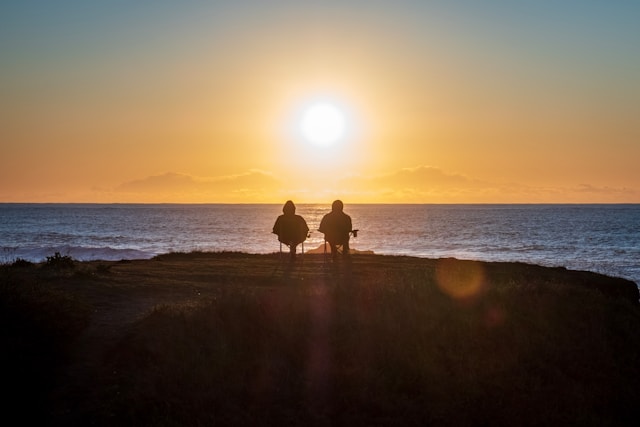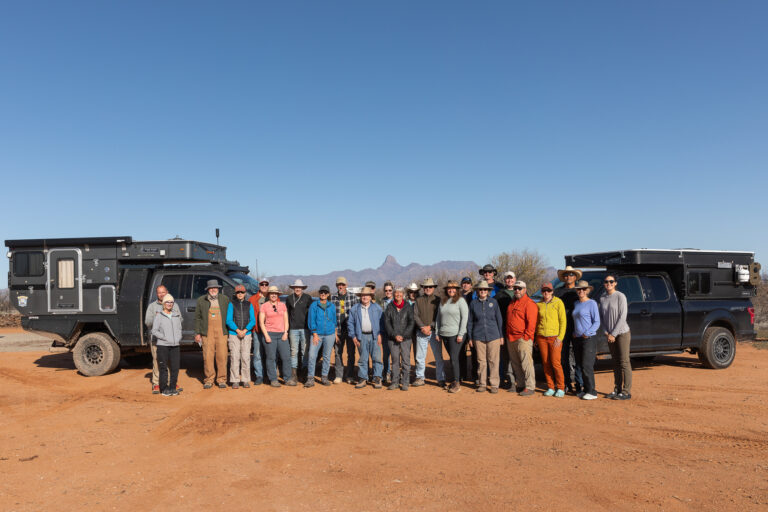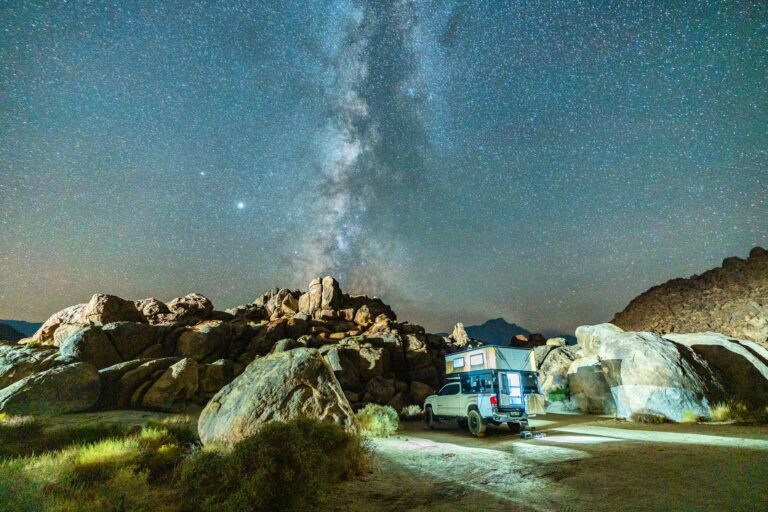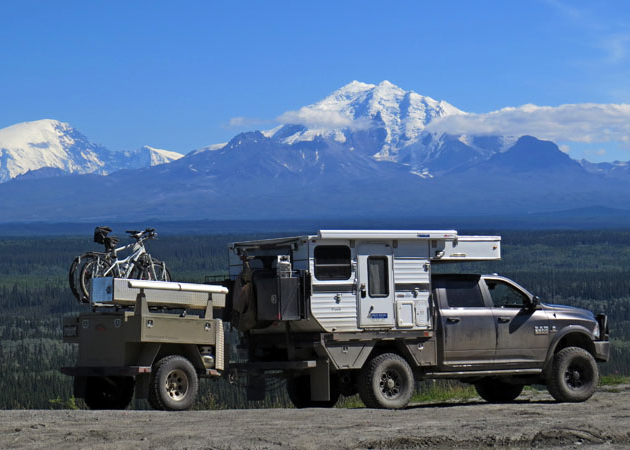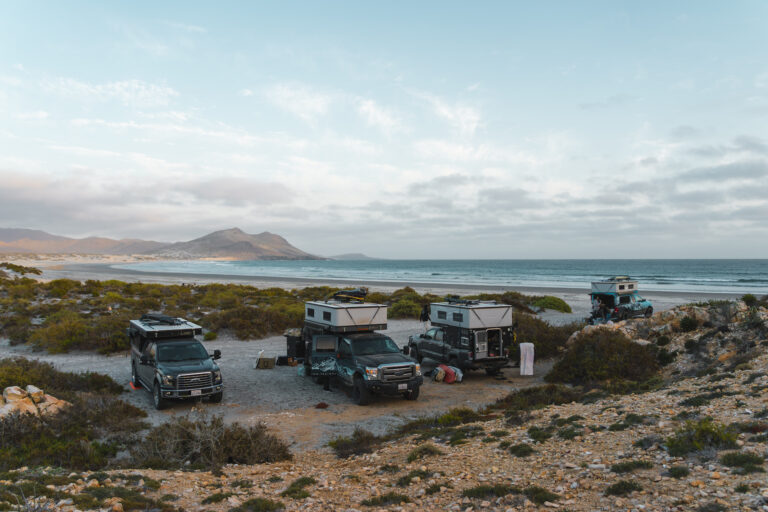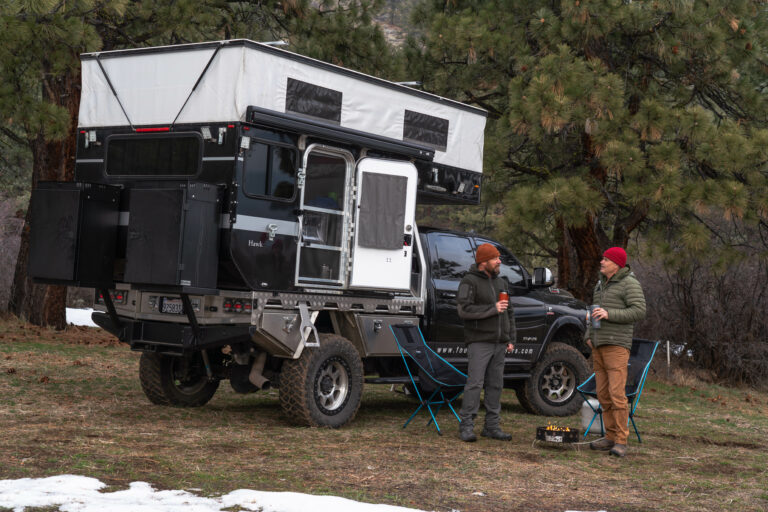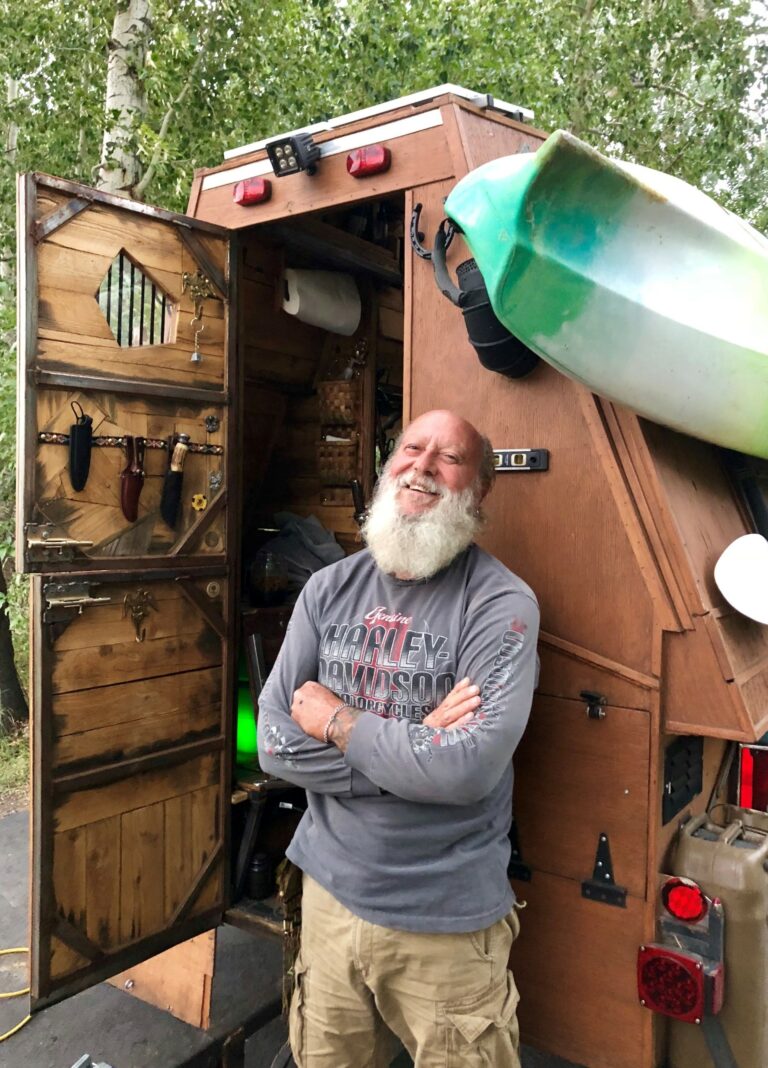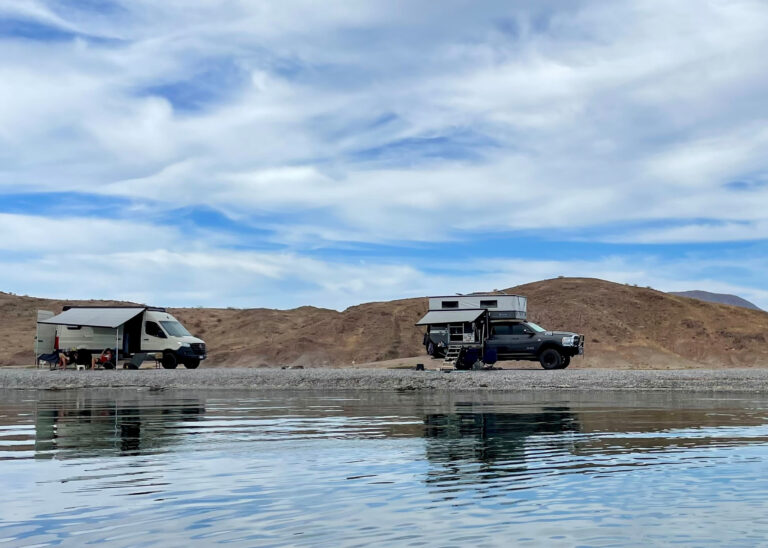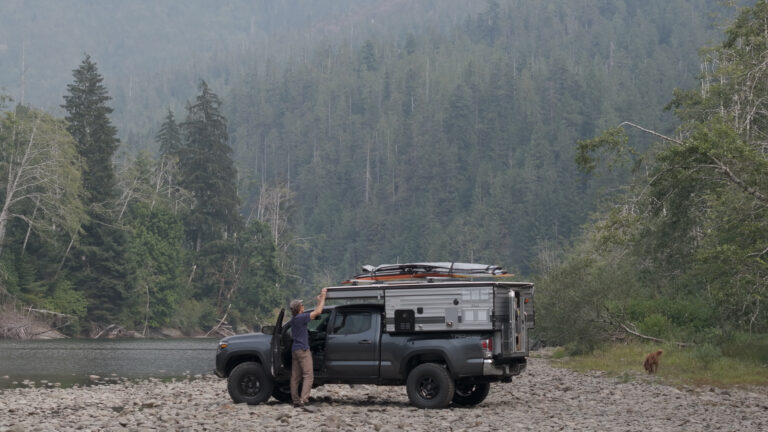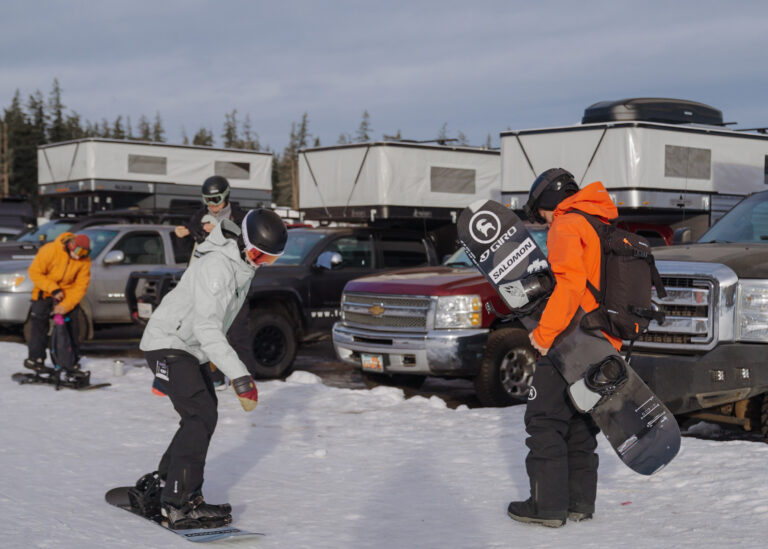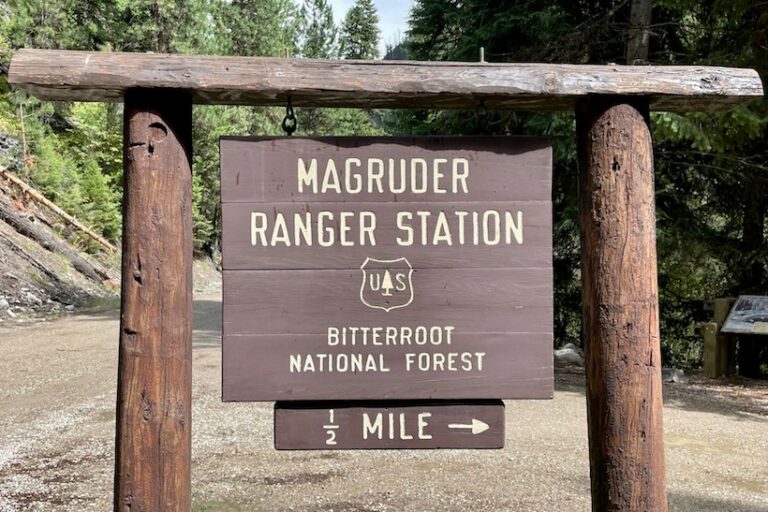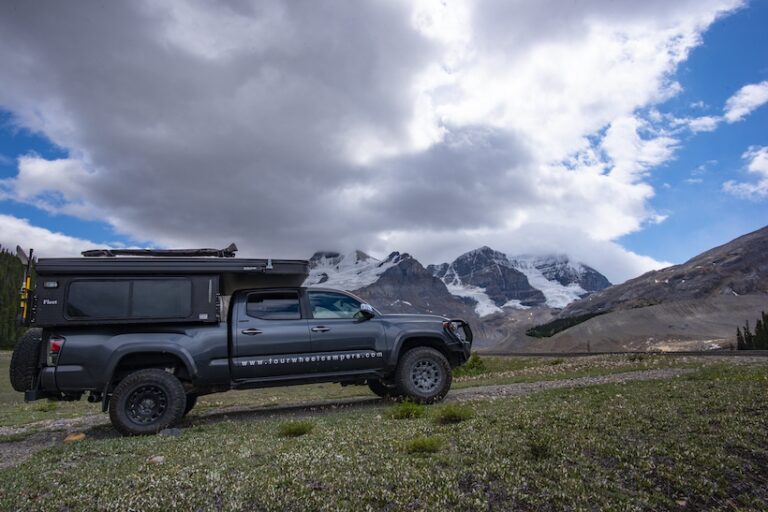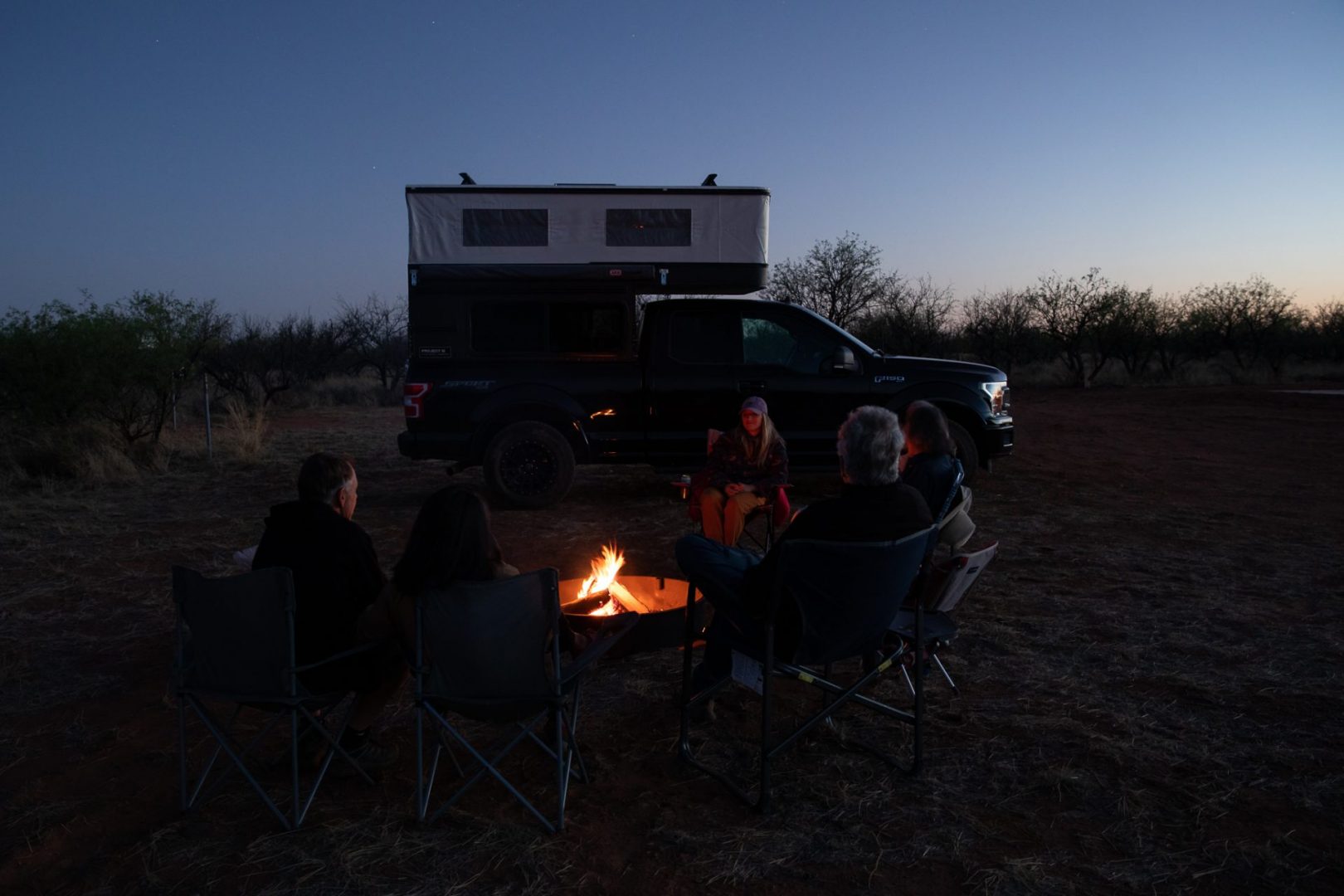
Campfire Safety Tips
Spring is just around the corner, and this means that truck camper season is almost here! As the weather warms up and you get ready to hit the road, you can help keep your travels safe by brushing up on some important camping fire safety tips. The past few seasons have seen their fair share of devastating wildfires, and the dry climate paired with an increase of campfires and propane use underscore the importance of responsible outdoor recreation.
If you want to do your part in minimizing the risk of fire while offroading and camping, here are some helpful things to keep in mind:
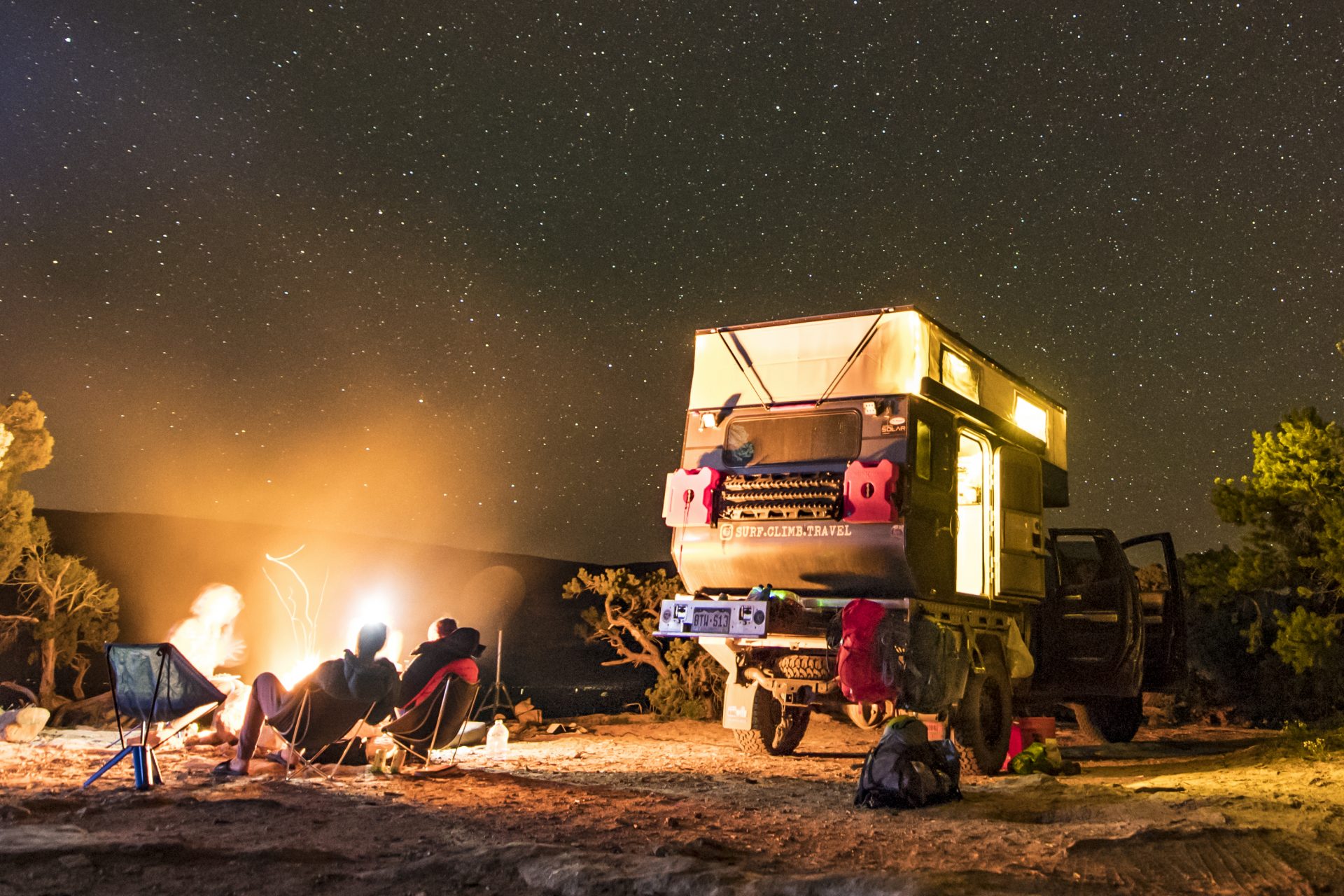
Ensure Your Smoke, Propane, and CO2 Detector Are in Working Order
The National Park Service reports that investigators often discover that there were no smoke detectors present when investigating fires that occurred in RVs and campers. Ensuring that you have working smoke, carbon monoxide, and propane detectors in your rig is an easy way to ensure you will be alerted in the event any smoke or leaks occur. It’s also a good idea to regularly test these detectors, especially before you embark on a trip. The manufacturers of these devices will also provide recommendations of how often a detector needs to be replaced, so try and be mindful of adhering to those guidelines. Additionally, taking extra batteries along with you can give you peace of mind knowing that you won’t be without these safety devices in the event a battery dies.
Inspect Your Truck Camper or RV Before Hitting the Road
Keeping your truck camper or RV well maintained is another important aspect of minimizing fire hazards. Propane leaks, loose electrical connections, and dragging brakes are just a few examples of maintenance issues that could potentially start a fire. It’s important to make sure your rig is road-ready before embarking on a camping trek, and if you are not mechanically trained yourself, taking it in for a professional pre-trip inspection can go a long way in keeping your rig, yourself, and any passengers or bystanders safe.
Ensure Easy Access to Fire Extinguishers
A fire extinguisher can save lives by preventing a small spark from turning into large flames, which is why it’s a good idea to keep several around while you camp. Having an extinguisher in the front of your pop up truck camper, one in the back, and one in a safe place outside can help ensure you have quick access to an extinguisher wherever you happen to be.
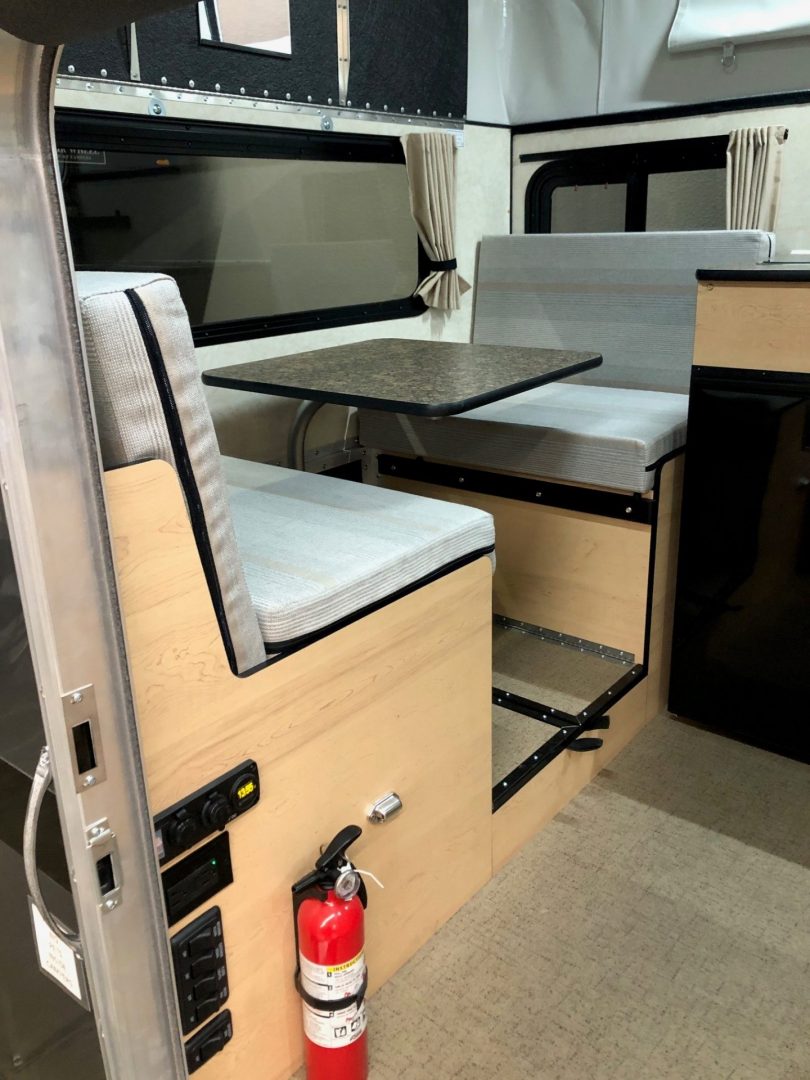
Watch Where You Park
It’s also important to avoid parking on dry brush, grass, or debris. The undercarriage and exhaust pipes of your camper or truck can heat up significantly, especially if you’ve been driving for an extended period of time. To avoid the heat from the undercarriage igniting any dry material, be cautious about where you position your rig when you park.
Create and Practice an Emergency Exit Plan
Minimizing fire hazards goes a long way in preventing them, but the unexpected can still occur. Because of this, it’s important to create an emergency exit plan in case a fire occurs while camping. Most RVs and truck campers come equipped with emergency exit windows and hatches, so inform yourself and your passengers of where these are located and how to utilize them. Additionally, inform your passengers of where the fire extinguishers are kept, and create a plan for getting any small children or pets to safety. It’s also a good idea to establish an emergency meeting point a safe distance away from your campsite. This will allow you to make sure everyone is accounted for or determine if someone is missing and in need of assistance. Practicing this escape plan often will help ensure that everyone is on the same page.
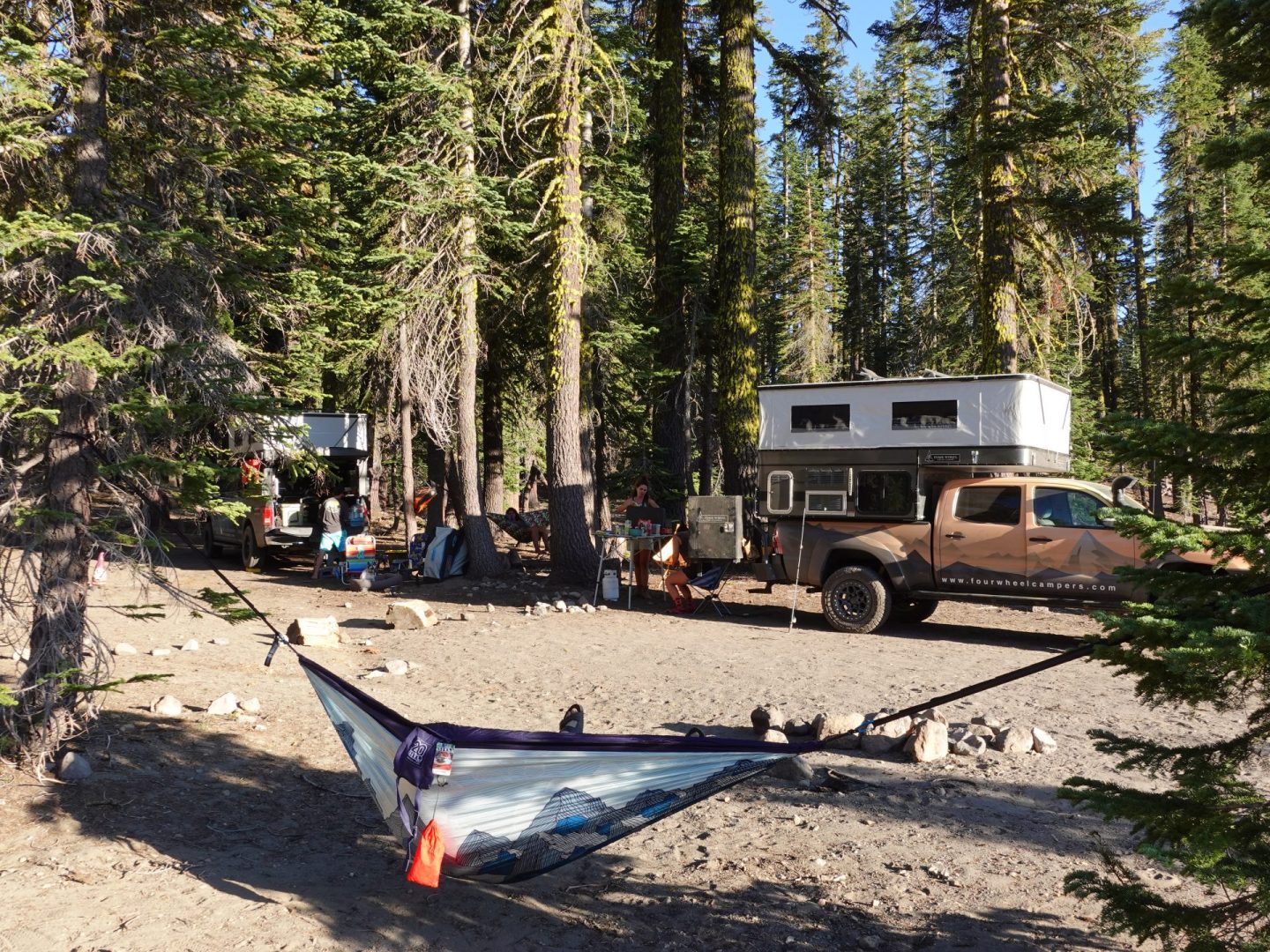
Be Careful When Using the Stove
Cooking in your truck camper or RV allows you the wonderful benefit of blending the great outdoors with the convenience of modern appliances, but it’s important to keep some important fire safety measures in mind. The kitchen is an area where fires commonly occur, so be extra cautious in keeping burners and ovens clean from any grease or grime build-up that could catch on fire. Additionally, make sure to remove anything flammable, such as paper towels, from your cooking area, and never leave your oven or stove unattended.
Be Careful with Extension Cords and Powerstrips
It is generally advised to not use extension cords or powerstrips in a rig because using them may overload the electrical outlets, which can result in a fire. If you have to use an extension cord, make sure it is a durable one, and never exceed the load capacity of what the cord can handle.
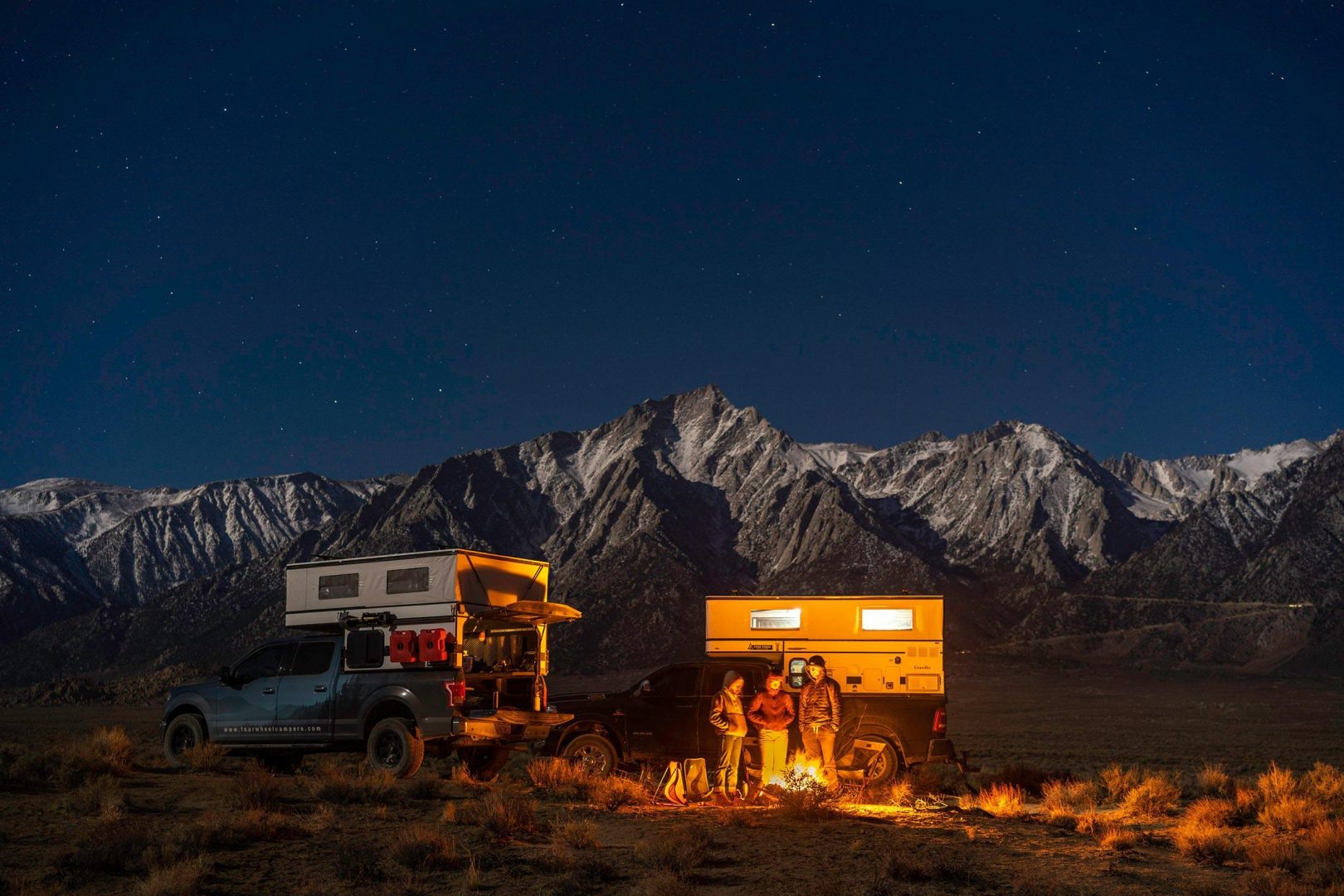
Follow Safe Campfire Practices
For many people, sitting around a campfire while taking in majestic scenery is one of the best parts of the Four Wheel Campers truck camper lifestyle, but there are some important dos and don’ts to keep in mind when it comes to enjoying this classic outdoor experience. These include:
- Knowing where fires are allowed. Not every campground allows fires, and some areas that usually allow fires may have fire bans in place if the area is at a significant risk of experiencing wildfires. If there is a ban in place, it’s important to resist the temptation of building a campfire. Signs may be posted alerting you of the status, but it’s always important to be proactive about discovering what the rules are. If you’re unsure, ask a campground attendant or a wildlife official from the ranger station about what the fire regulations involve.
- Staying updated on expected weather conditions. If strong, turbulent bouts of wind are expected, it may be in your best interest to forgo the fire, even in areas that lack fire bans. Winds can cause fires to spread rapidly, so adapting your fire safety measures to reflect the weather is a smart way to avoid any danger. Wind can also be a hazard to your awning, such as by causing embers to reach the fabric or damaging the hardware in general, so keep that in mind during your camping trip.
- Making sure the fire is at least 15 feet away from anything flammable. A fire should never be built next to or underneath anything that could catch on fire, as loose embers often escape out of the firepit. Keep your fire away from your rig, any combustibles, extra firewood, etc. Additionally, ensure that your campfire is not underneath any tree branches or your awning. If your awning were to catch on fire, it could be severely damaged, or in a worse case scenario, the fire could even possibly spread to your vehicle.
- Never leaving your campfire unattended. Sudden gusts of wind or loose embers can quickly turn a calm fire into a boisterous blaze, which is why a campfire needs to be monitored at all times.
- Making sure the fire is completely out before going to bed. In order to do this, pour water on the fire, and then stir the ashes with a shovel. Pour more water on the ashes and stir again. Continue doing this until the fire is cool. If the firepit is still hot when you hold the back of your hand slightly over the ashes (don’t directly touch the hot ashes), it means it’s not fully extinguished. If the firepit is still hot, a breeze could reignite the flames, leading to a potentially dangerous situation or even a wildfire.
Be Careful if You Smoke
If you smoke, be extra cautious in ensuring your cigarette is completely put out before turning your back on it, and never throw cigarette butts on the ground.
Know Who to Call in an Emergency
When you embark on an outdoor adventure, it’s always helpful to write down the numbers to the closest emergency contacts of the area in which you’ll be staying, such as the fire station, police department, hospital, or ranger station. Additionally, if you enjoy the solitude of escaping to areas that are more off the grid, it may be beneficial to invest in a satellite radio that allows you to call for help in regions without cell phone service.
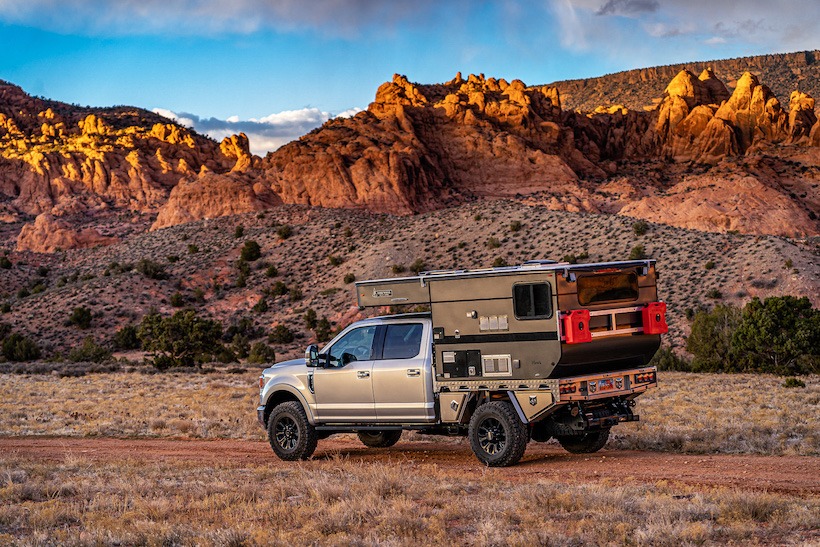
Happy Trails!
While thinking of fire safety is not the most exciting part of the wonderful world of camping, it is a necessary part of ensuring a safe trip. Hopefully these camping fire safety tips help clarify how you can minimize the risk of experiencing a fire on your next trek. With a bit of forethought, planning, and cautiousness, you can do your part in ensuring that you and your passengers are able to fully enjoy the experience of travel without having the good times interrupted by dangerous flames. Happy trails!
Related News
-
Reasons You’ll Regret an RV in Retirement
Congratulations, retiree! Stepping into retirement is a big deal – the world is at your fingertips! You want to ...
Read More -
Four Wheel Campers Hosts Third Annual Volunteer Event in Southern Arizona
In March 2024, Four Wheel Campers returned to the Sonoran Desert for our third annual volunteer event with Friends of Buenos ...
Read More -
Best Places to Stargaze in the United States
The moment your pop up truck camper is set up, the fire is lit, and the stars arrive, is one of the best feelings, especially ...
Read More -
The Perfect Campsite Challenge
Read the Full Article
Read More -
Lightweight Pop-Up Truck Campers: Hub-and-Spoke RVing with Boundless Adventures
Read the Full Article
Read More -
8 Breweries You Can Camp At With Your Four Wheel Camper
There’s nothing like a cold brew after a long day of travel. Better yet, there is nothing better than a cold hard brew at a ...
Read More -
Veteran and his Artistic, Off-Grid Lifestyle
We know our customers are special. Four Wheel Camper customers not only appreciate quality, efficiency, and great ...
Read More -
FWC Customer Pens Emotional Tribute
We know our customers are special. Four Wheel Camper customers not only appreciate quality, efficiency, and great ...
Read More -
7 Tips for Living on The Road Full Time From Industry Experts
Sometimes it’s the little details that get overlooked when prepping to live on the road full-time in your truck camper rig or ...
Read More -
Ski Resorts Where You Can Winter Camp in the Parking Lot
Embarking on a winter camping adventure offers unparalleled satisfaction, especially when you wake up snug and on-site in ...
Read More -
A Magruder Corridor Trail Adventure
Read the Full Article
Read More -
Get North – Overlanding In The Canadian Rockies
Read the Full Article
Read More

